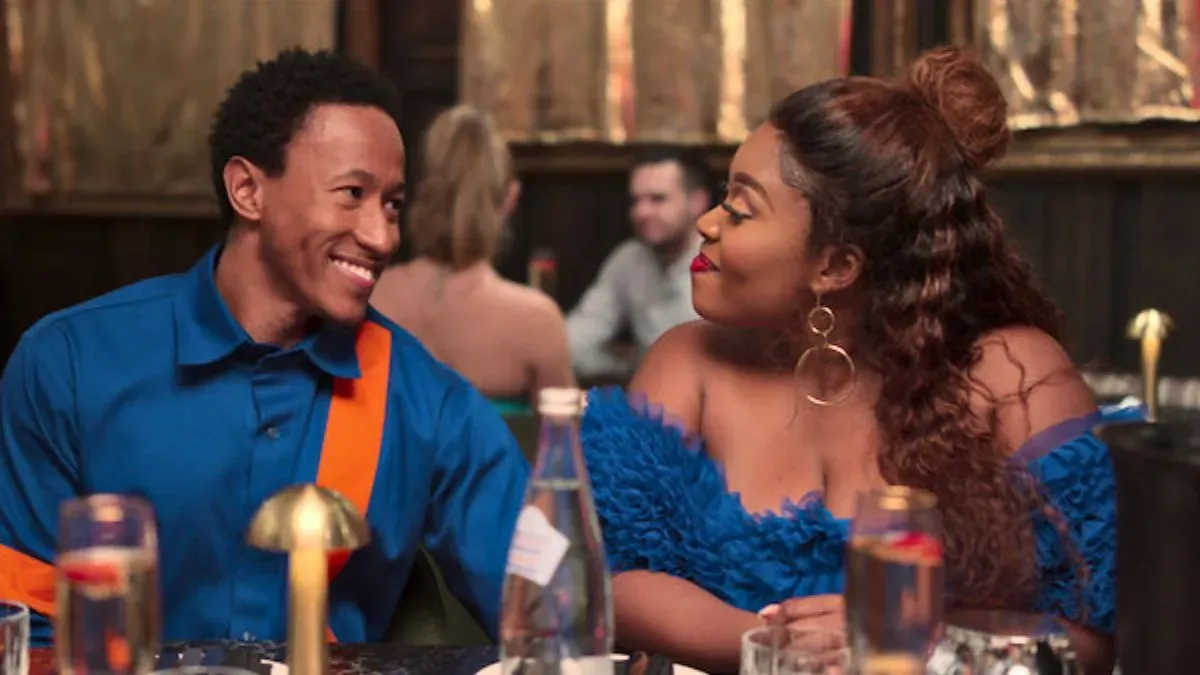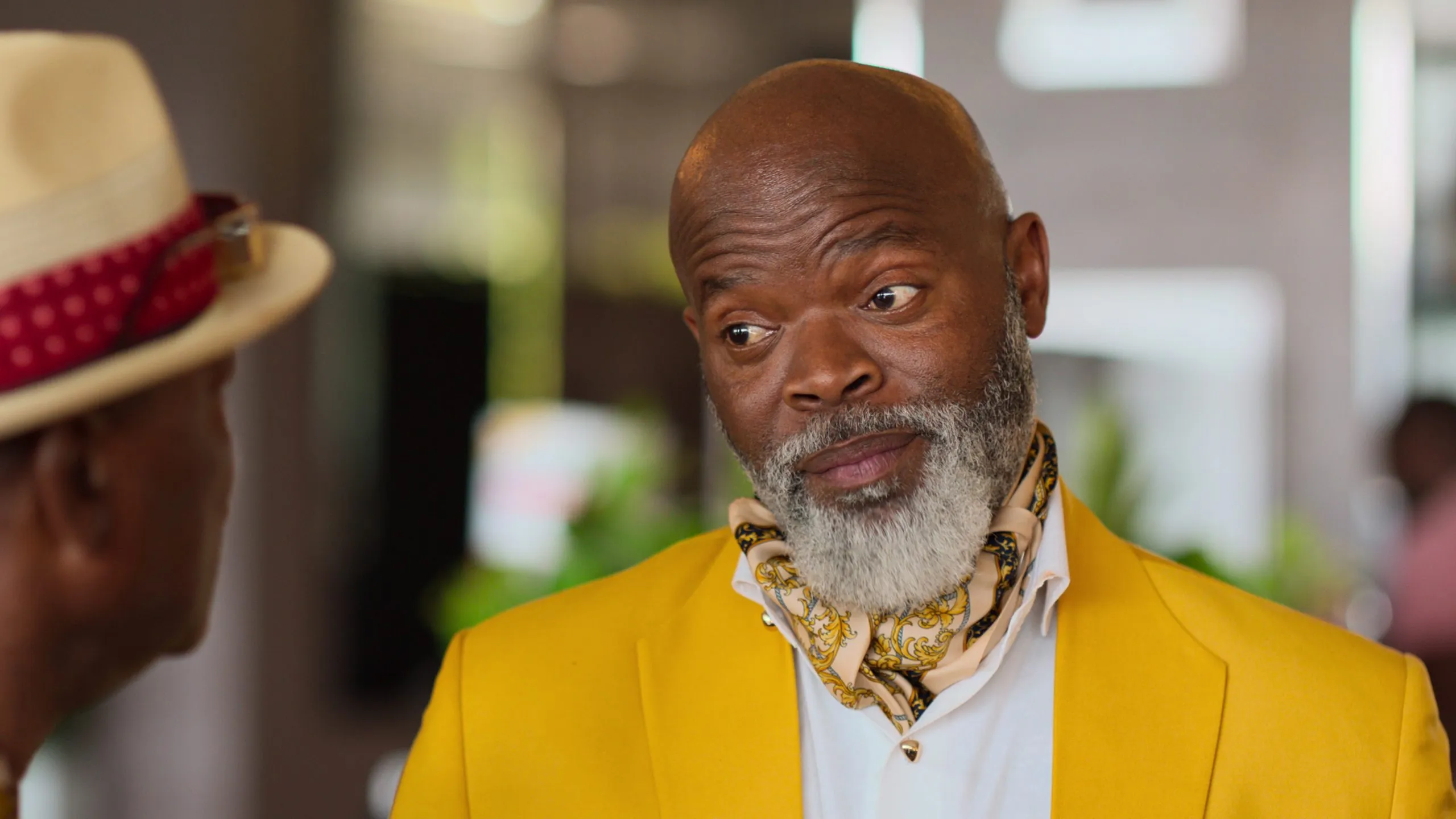Zoleka and Kagiso have dated for three years and seem ready to take the next step in their relationship. Kagiso plans to propose during a romantic beach getaway. However, doubts have started to creep into Zoleka’s mind. Suspecting her boyfriend may be hiding something, she engineers a trap to catch him in the act. But things don’t go according to plan.
When Zoleka unexpectedly storms their surprise proposal, it sets off a dramatic chain of events. Devastated by her actions, Kagiso calls off their relationship and moves out. Now Zoleka is determined to make amends and win back her man. With help from both sides of the family, she launches a comedy of errors to rekindle their love.
This series provides laughs through its over-the-top antics and charming performances. But underneath is a story that honestly explores communication issues long-buried. Zoleka and Kagiso clearly care for each other yet struggle to be open. Repeated conflicts stem from a lack of trust rather than malice. If they can work through barriers of the past, their future remains bright. For now, it’s a rollercoaster of emotions entertaining audiences with its lively characters navigating love’s bumpy road.
Familial Ties that Bind
Zoleka and Kagiso make for dynamic lead characters with an emotional depth that resonates. Their three-year relationship feels genuine, built on shared hopes for the future. As an up-and-coming actress, Zoleka radiates charm and drive. Yet underlying insecurities emerge in how she clings to Kagiso, her rock. He likewise adores Zoleka, supporting her career while planning their next steps.
But conflicts arise from poor communication. Where Zoleka sees neglect, Kagiso feels smothered pressure for permanence. Viewers empathize with both perspectives in their complex flaws. Sivenathi and Bohang convey an earnest care for one another that keeps you rooting for reconciliation. Their chemistry buzzes off the screen, a testament to the nuanced layers inhabiting even the most complicated of loves.
Supporting players also lend vibrant colors. Amahle provides comedic relief and loyal friendship to contrast Zoleka’s paranoia. But her secretive behaviors stir intrigue around past traumas. As for Kagiso’s partner Sbu, his wit cracks wise yet shelters wisdom from prior marital woes. Each character feels richly rounded rather than two-dimensional.
Family, too, plays a pivotal role, for better and worse. Zoleka finds champions in her loving father and carefree cousin. Yet tensions arise in judgment from Kagiso’s mother or interference from relatives. Their influences mirror real-life strains, from cultural expectations to lingering past issues. But through it all, the ties of family and relationships give hope that understanding can triumph where assumptions once fractured the harmony between all.
Laughter and Tears Share the Stage
How to Ruin Love finds the balance between knee-slapping comedy and poignant drama. Deftly moving between these genres could have resulted in a jarring watch. Instead, viewers are treated to a seamless integration of humor and heart.
Comedic elements undoubtedly drive the narrative. Zoleka’s paranoid antics and Amahle’s quirks elicit constant chuckles. Subtle jokes are woven into dialogue without detracting from more sentimental storylines. Even when hijinks escalate into full-fledged farces, the root of real issues shines through.
Repetition of a lover’s quarrels may try patience. Yet confronting past struggles invites transparency rare in rom-coms. Discussions highlight communication’s importance without lectures. Witnessing personal growth stems genuinely from mistakes rather than convenient amnesia.
Serious themes anchoring humor avoid cheap laughs at others’ expense. Relationships face relatable trials like disapproval and doubt in commitment. By tapping vulnerability, characters attain depth beyond one-dimensional tropes.
Strong performances connect laughs to life’s bittersweetness. Chemistry between leads imbues frivolity with feeling. Swings between comedy and pathos feel natural, as in relationships themselves.
Care taken in balancing these tones gives the show rewatch value. Opening discussions on topics like speaking one’s truth encourages reflection beyond a single viewing. All the while, sufficient chuckles sustain interest throughout the season’s ups and downs.
How to Ruin Love offers a reminder that happiness and hardship often go hand in hand. By interweaving laughter and tears, it affirms emotional complexity as universal within us all.
On-Screen Chemistry Sparks Believable Romance
How to Ruin Love finds success due to stellar performances bringing characters to life. At the story’s heart lie Zoleka and Kagiso, portrayed by Sivenathi Mabuya and Bohang Moeko. Their convincing chemistry anchors the romantic drama.
Scenes glow with realism as these talented actors showcase multifaceted emotions. Love, hurt, hope, and vulnerability surface credibly through subtle glances and tender gestures. Passion underpinning Zoleka and Kagiso’s bond radiates tangibly.
Yet their skills extend beyond coupling allure. Each crafting nuanced individuals with understandable perspectives, strengths, and weaknesses. Mabuya breathes vibrancy into Zoleka’s ambitious nature and sharp suspicions. Meanwhile, Moeko brings charm and complexity to Kagiso’s ambitions, reflecting how career pressures strain commitment.
Fine acting fleshes out motives driving their relationship fluctuations. Misunderstandings feel genuinely distressing instead of contrived melodrama. Heartstrings pull strongly during sincere apologies and rekindled intimacy. All due to leads investing fully in their roles.
Supporting players equally impress. From interfering parents to trusted confidants, side characters emerge multi-faceted. Intricate portrayals deepen the show’s world.
Strong work throughout lifts How to Ruin Love. Skilled emoting maintains viewer investment in tumultuous ups and downs. Laughter and pathos ring true thanks to unflagged commitment. Standout performances continuously captivate, helping intimate themes and lessons resonate.
Where some shows rely on story alone, natural chemistries here strengthen narrative quality and resonance. How to Ruin Love presents an authentic, layered romance well worth investing in.
Commitment, Permission and Forgiveness Explored With Care
How to Ruin Love delves into weighty topics woven insightfully into its entertaining romance. Central are themes of commitment, permission, and betrayal in modern relationships—ideas handled intelligently.
Raising questions around readiness for marriage, the series illuminates complications that arise moving to this pledge. It also highlights pressures faced by couples seeking family approval in their culture. Through frank discussions, perspectives are respectfully shared on valuing individual needs and traditions equally.
Contrast to pieces whitewashing over serious matters, forgiveness likewise receives in-depth attention. Pain caused on both sides emerges authentically through hurt, anger, yet compassion. Grace extended opens dialogue for repairing trust, not instant solutions.
Subtle yet poignant moments acknowledge scars of past wrongs do not vanish overnight. Reworking damaged bonds demands empathy, accountability, and time—lessons potentially resonating widely.
While providing laughter, characters feel fully formed through private wrestles mirroring reality. Plot twists stem naturally from this, not artificial drama. Relationships evolve believably from overcoming missteps through evolving understanding of self and others.
With care not to preach, How to Ruin Love offers compassionate insight on reconciling duty and self-actualization. Its light approach proves a vehicle for thoughtful commentary on issues central to global audiences. Quality reflects in shedding light without heavyhandedness, keeping viewers engagingly absorbed throughout.
Commitment and Communication in the Face of Frustration
While Zoleka and Kagiso’s relationship forms the heart of How to Ruin Love, certain elements strain believability. Repeatedly, the couple finds themselves back where they started, arguing the same points in an endless cycle. Understandably frustrations emerge, but their inability to properly address issues leaves some feeling unset.
We see Kagiso make questionable choices that test our faith in his character. When he brushes off marriage to Zoleka as she’s “too modern,” it rings hollow. Are we to think their three-year bond amounts to so little? Some plots also meander aimlessly, dragging out minor mishaps over many scenes rather than advancing the core narrative.
Yet amid such stumbles remain kernels of truth. Zoleka and Kagiso represent the imperfect yet deeply caring bond so many experience. Through their passion yet flaws, we see commitment requires continual communication—a difficult task made near-impossible without it.
While some storylines overstay their welcome, others offer wisdom. When our leads sit down together, shedding defensiveness to hear each other fully, their relationship grows. With understanding built on honesty rather than assumptions, they work as a team.
Such nuance gives How to Ruin Love its heart, compelling us to root for Zoleka and Kagiso despite narrative frustrations. Their bond, for all its challenges, feels authentic—a reminder that understanding and compassion strengthen even the most tested of loves.
Commitment, Communication and the Charms of Imperfection
While Zoleka and Kagiso face obstacles that try patience, at their core lies a bond worth salvaging. Through it all, Sivenathi and Bohang shine, imbuing their roles with authenticity hard to deny.
With humor and heart in balance, How to Ruin Love shows relationships messy yet meaningful. Repairs require candid talks and a closing of ears when pride speaks loudest. Though familiar fights frustrate, the leads’ growth feels true—each step bringing deeper understanding.
Not all ends neatly, as in life. Loose ends remain, hinting at richer stories still to unfold. But through flaws and follies, an affirming message emerges: with care, compromise, and an open hand, even the deepest cracks may heal.
For all the tight spots the script encounters, its strengths lie elsewhere—in memorable moments, marriage creates and friendship sustains through life’s winding road. An imperfect blend, yet one reminding love’s rewards far outweigh its risks, its joys more than balancing its pains.
For those seeking wit and wisdom in equal measure, how romance attains its highest highs and lowest lows, How to Ruin Love offers charm that lingers long. Fans of the genre will find its blend of laughs and self-discovery a most satisfying watch.
The Review
How to Ruin Love
While not without its flaws, How to Ruin Love ultimately succeeds in its aim to entertain and spark meaningful reflection. Anchored by strong performances from its leads, the series navigates heavier themes within a lighthearted comedy framework. While certain subplots feel extended, the heart of Zoleka and Kagiso's story engages to the end. With an emphasis on growth through open communication, this charming series offers laughs as well as lessons to appreciate.
PROS
- Strong central performances from leads
- Humor is fresh and lands well.
- Touches on meaningful themes of relationships judiciously
- Balances multiple tones of comedy, drama, and introspection
- Characters feel authentic and evolve believably.
CONS
- Some subplots seem overly drawn out.
- Repetitive arguments between leads lose steam.
- Clichéd tropes in places
- Not all character decisions are logical.





















































Discussion about this post